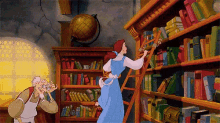We’re all sick and bored of articles, emails, and essays that have the same overused expressions. Or even worse – something that has no personality at all. While you might not have time to make every message you write creative, this one simple technique can help you develop your voice.
You can also use it when studying to remember random facts that will most definitely be a multiple-choice question and make study guides that are engaging (so much so that your friends will want to steal them). It's time to cross out the cliche to make your writing more specific and fun to read.
Let us slide into your dms 🥰
Get notified of top trending articles like this one every week! (we won't spam you)Here's How:
Instead of taking the easy route and plopping in a cliche when you're writing something, reimagining it can make your writing more exciting to read. Because if a group of words seems to go together, it’s probably getting stale (like that sandwich you made for lunch yesterday but forgot to eat and is still in your lunchbox).
Exhibit 1: Blending Two Phrases
Let’s start with something you’ve probably read in a blog post (or heard when two best friends are talking about how they met): “And the rest is history.”
You’re just going to stop the story there? Absolutely not.
By blending two common phrases, you introduce an element of surprise. The reader thinks they can finish the phrase—but you're too sneaky for that.
- And the rest was happily ever after.
- The rest was an uphill battle.
- And the rest was ignorant bliss.
Can’t come up with anything that fits together? Scroll through a list of cliches to mix and match.
Don’t get discouraged if nothing sounds quite right yet – this can take a little experimentation. You want to come off as genuinely clever, not as someone who is confused about the words you're using.
Exhibit 2: Flip a Word
This technique is perfect if you want to completely change the meaning of a common cliche.
When you swap out the most important word in the phrase (usually at the end), it gives your writing a squeeze of freshness.
"Avoid it like the plague"
becomes
- Avoid it like microwaveable rice
- Avoid it like high school drama
- Avoid it like dental cavities
- Avoid it like you avoid highways as a new driver
By choosing to highlight something that’s relevant or that you’ve personally experienced, you can connect with your reader on a deeper level. They’ll be hanging on to every detail, as opposed to scanning your paragraphs to get the main idea.
Exhibit 3: Get Specific
Being general or unintentionally outdated with what you're writing is one of the best ways to lose your reader's attention.
When was the last time you saw something “selling like hot cakes”? According to idioms.thefreedictionary.com, this common phrase means, “To sell very quickly and in large quantities. In American English, `hotcakes' are pancakes, while in British English `hot cakes' are cakes which have just been baked.” Is there something iconic that sells very quickly in 2023?
Instead of "selling like hot cakes", try:
- selling like Birkenstocks in 2021
- selling like Instant Pots during the pandemic
- selling like satin pillowcases for self-care girlies
Drill down on the details of a moment or reference a trend (hello, overpriced German jute and suede sandals).
Not only can this technique help you find your writing voice, but in an upside-down way, writing in your own style (instead of repeating overused cliches) can improve your public speaking skills. You’ll know how to concisely illustrate a point, rather than getting stuck and rambling. When you’re having a conversation, you’ll be able to articulate your thoughts in an easy-to-understand way. And by becoming a better communicator, you’ll discover how to talk to almost anyone with confidence.
When I was preparing to give a 10-minute TEDx talk (which happens to be about creative writing), I wanted to make it more entertaining than shoving facts down the audience’s throat. I wanted my talk to be memorable and sticky, so that the people watching online or in the audience would be able to remember my main point.
I wanted my talk to be more sparkly, more ~interesting~ to listen to. While storytelling is the ultimate attention-grabber, exchanging overused phrases for some crunchy words was an easy way to sprinkle personality into that speech.
One of the other speakers that day used this technique perfectly. When he was talking about failure and the impact it had on him, he used the phrase "eat math for breakfast" to illustrate how important getting good grades on math tests was to him. Months later, I still remember his metaphor and his talk's overarching message when I'm struggling with a concept in school.
Another speaker referenced being scammed as a 5th-grader by an ad on Cool Math Games – something that's relatable to most of Gen Z and their parents (tell me you didn't come home from school and play Duck Life for hours). I like to keep a list of fun snippets like these – some of the best I've heard are "Alas, inadequately", "Christmas spirit police", and "insultingly modernized". But when searching for the perfect phrase, it's all about context and the words around it.
If you're writing an essay, think of ways to get more exact with your examples – this is a really helpful tool to make sure your words have the intended connotation. A college degree could be "the golden ticket to glorious options" or "a piece of paper to frame in a childhood bedroom", depending on your perspective and the purpose of the essay.
If you're writing an email asking for an internship, state the reasons why you're the perfect candidate instead of the vague request: "if there are any opportunities available, please don't hesitate to reach out". And when studying for a big test, making up oddly precise stories about the words, phrases, or events you need to remember is so helpful.
It’s not just about making your writing more effective and less boring. It’s about stretching your creativity in a new way, building analogies, and finding your voice. How can you stretch your imagination today?



















